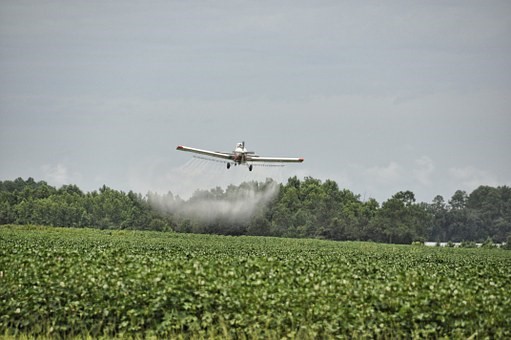No business owner ever wants to get lawyers involved, but sometimes, it’s necessary. Often, legal aid comes into play when it’s a matter of protecting the rights of consumers. And, when a company negligently advertises a product as safe and it turns out to be linked to cancer, it is imperative that victims fight for compensation.

Sound familiar? If you’ve been keeping up with the latest class action suits, you’ll know that the company in the headlines is Monsanto. Monsanto is the largest agricultural and genetically modified organism company, and they have recently come out of a lawsuit with a verdict of more than $2 billion in damages. Over 13,000 lawsuits have been filed against Monsanto due to the carcinogenic ingredients in their weed killer brand Roundup, which has led to non-Hodgkin’s lymphoma.
If you’re concerned about protecting your business from lawsuits that could potentially tank your company, take a lesson from Monsanto. Here’s everything they did wrong and everything you should avoid:
Table of Contents
Monsanto’s Neglect
During the peak of the 1970s, Monsanto was a booming company that was an inspiration for businesses everywhere. Their claim to fame was helping crops grow anywhere, even in places affected by droughts.
When they developed these growing techniques, they noticed that weeds grew with the produce. Thus, herbicides were born.
Monsanto developed and secured a patent for glyphosate, the main ingredient in Roundup. This ingredient targets certain strains of plants that are considered invasive and kills them, without harming the produce-bearing plants.
Even though their chemical worked, Glyphosate went under investigation for many years due to major health risks. Monsanto willingly ignored these warnings and continued to market Roundup as the go-to weed killer for farms and houses alike. Their neglect would come at great costs, both to the company and to people’s lives.
The World Condemns
The world quickly came to condemn the use of glyphosate. In 2015, the World Health Organization voted to take a stance condemning Roundup. They declared that glyphosate is probably carcinogenic to humans and animals. This declaration was the first ever declaration by an international organization like the WHO.
However, the EPA continued to claim that the ingredient is not a carcinogen and was safe to use on a variety of produce. The public was slow to react to this news. Once the news officially broke, people had become so used to Roundup that it took time for consumers to ditch the product altogether.
The Suit
Despite the new research condemning Monsanto and the many claims against the company, it became obvious through their marketing tactics that they were not backing down. They had a monopoly on a market, and it was impossible for them to admit to the public that their products are dangerous. They knew they would lose cash.
Attorneys started filing class action suits on behalf of the 13,000 cases of non-Hodgkin’s lymphoma and the courts quickly realized how negligent that Monsanto had been. While the first initial verdict had a ruling of $289 million dollars, this was eventually lowered to a painstakingly minimal amount of $78 million.
Once the first case was settled however, more people began to realize they could receive compensation for the many medical conditions brought on by their use of roundup.
The Verdict
When a major company ignores health concerns for profit, it becomes extremely difficult for the damages that they caused to be reversed.
However, a $2-billion-dollar verdict was ordered to begin restitution for the hundreds of thousands of people affected but the blatant negligence of this company. While Bayer, the company that owns Monsanto, claimed they had great sympathy for the affected, their lack of responsibility after the verdict shows they are without remorse.
The verdict against Monsanto offers an important lesson for business owners anywhere. No amount of profit is worth the health risks and lives of thousands of people. If you use chemicals in any of your products, make sure it’s researched and vetted before you begin marketing it to your customers. It’ll save you a whole slew of legal cases and money in the long run.

